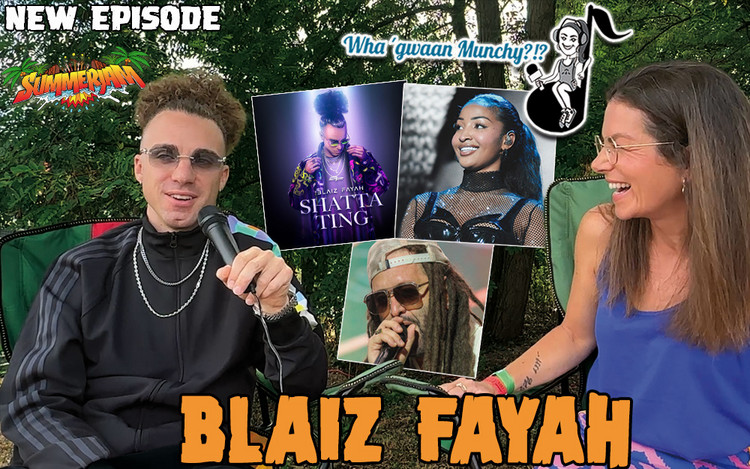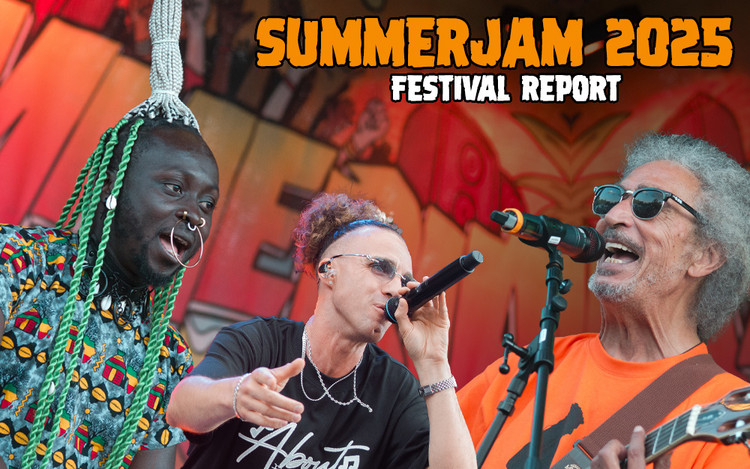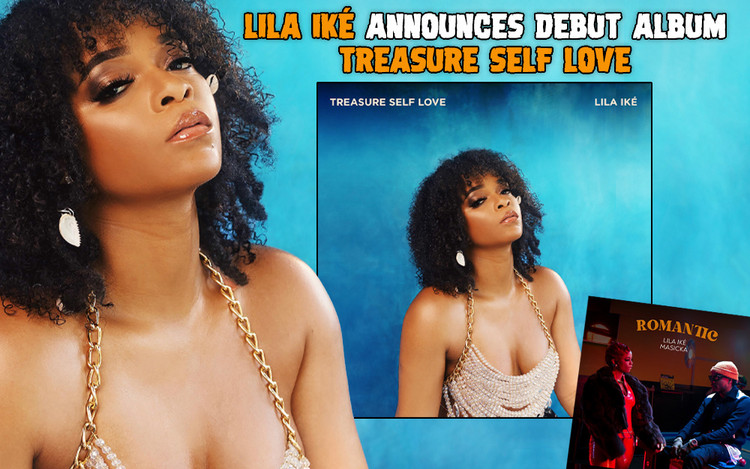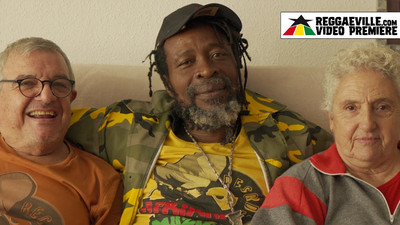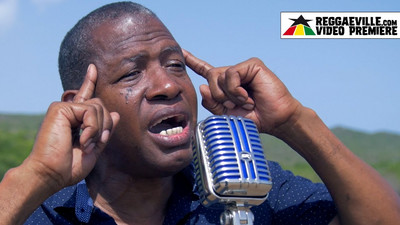A Tribute To Joe Higgs 2024 ADD
06/03/2024
Memories of The Father of Reggae - A Tribute to Joe Higgs in Jamaica 2024
06/09/2024 by Jessica Knight
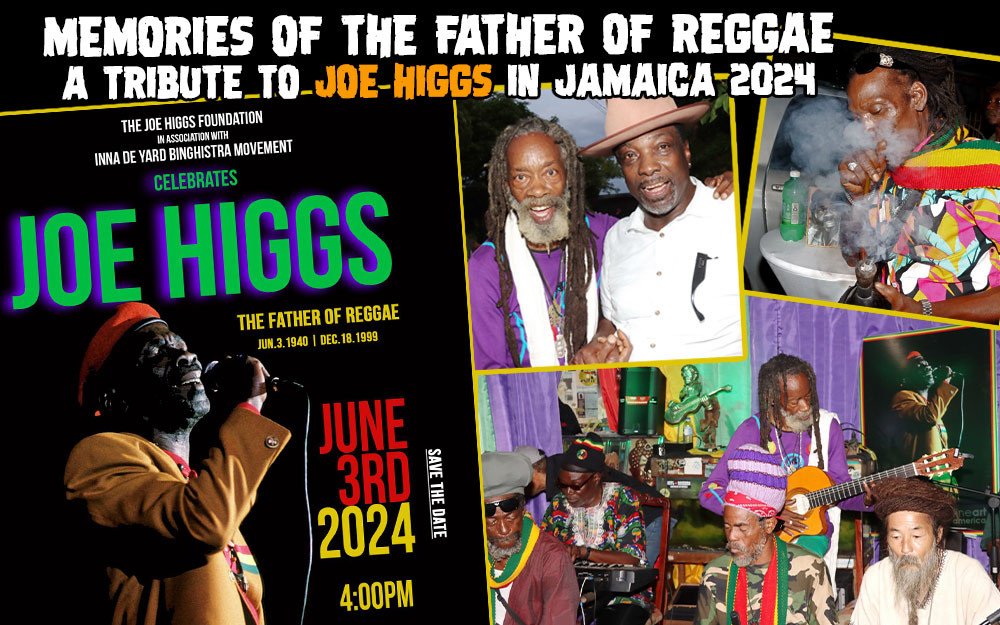
“WHY SHOULD WE KEEP THE MEMORY OF JOE HIGGS ALIVE?”
One day this question will prompt exactly the same answer as it does today, yet the answer will be supplied by those who learned it indirectly. The Higgs Tribute, hosted by Inna De Yard in collaboration with the Joe Higgs Foundation on June 3rd 2024, offered one of those increasingly rare opportunities to hear people who knew Higgs explain why he is considered the God-Father of Reggae. “Not only the Godfather, the father, but the God of Reggae,” elaborates Ilah Bash, (who also informs me that I’ve seen him less often at Chinna’s because he’s recently taken a wife - congrats to Mr and Mrs Cool River Water).
“When they say God-like, they mean it,” confirms Earl ‘Chinna’ Smith, who skips in and out due to host duties, intermittently joining myself and several elders under a temporarily constructed tent in the street just outside his place. “He carried knowledge. None of us know where he got that knowledge from. He just had it.”
Each source I question has their own interpretation of what made the man into a modern-day deity. “Part of his work was recruiting artists,” Harry Joseph explains from my left. “When you came to Studio One he would listen to your sound and pass you on.” Higgs crafted the voices of Dennis Brown and Bob Marley, according to both Joseph and Higgs’ brother, Danny, who recalls that Higgs worked with Marley on his voice for four years before passing him on to Lee Scratch Perry for a final polish.
“He set the foundation for music,” continues Joseph, yet “it wasn’t just his way of working with musicians on music that he’s known for. He teach a lot of us the culture. Rastafari and the technique of music.”
Next I ask how and who Higgs influenced. All agree that Higgs was central to the formation of Reggae as it was transitioning out of Ska. All list Burning Spear, Toots ‘Country Roads’ Hibbert, and Romain Virgo, “who is a rising star” as music artists who benefitted from Higgs.
There are alchemical ingredients to the music and the musicians that motivate people to flock and imbibe their performances. One example of how Higgs might have provided something more than music to flock to was provided by the gentleman to my right. I was informed by Oliver ‘OD’ (‘Order of Distinction’) that not only is Higgs the “Godfather of the Reggae sound, [but] everything started through his religious beliefs.” The gentleman to my left confirmed this, saying that Higgs “was Rasta in his belief, though he didn’t wear dreadlock.”
This led to my third question: Who were the people who influenced Joe Higgs?
One by one I ask my tent-buddies. Mr Order of Distinction’s eyes widen as he surprises himself, “I don’t know.”
Just then we hear Gabre Selassie, one of three guest selectas sandwiched between DJ Marshmello and Yumi Hi Powa. He’s warming up the crowd with “some crucial ska and rock steady music”. He introduces his next selection as a “sound from the East”. I’ve heard this phrase a hundred times by now, without any connection to its meaning.
“From the East,” Oliver reiterates with confidence, guessing correctly at my ignorance, “that mean the music. The music used to come from the East of the Island. Bull Bay. Harbour View. But the singers used to come from the West, places like Trench Town.”
Ah, right, ok. But who influenced Joe? How did he become Rasta?
“Joe was self-taught,” a couple people offered. I’m not convinced. It takes more than a village to raise an artist. When a figure like Higgs comes along, he stands on the shoulders of a history that stretches across continents. Someone taught Joe to engineer, song-write, play all the instruments etc. Someone taught him the value of Rasta enough that he would pass it on to many who came under his wing. Perhaps what contributes to the whole ‘Joe is God’ mythologisation process is the lack of a corroborated origins story. It allows us to imagine he was simply “born with the knowledge”, which is how Chinna describes it when he rejoins us under the tent, calling forth the circulating chillum.
“...instrumental in carrying out the harmony sound of the Wailers,” Gabre echoes into the mic as he drops Simmer Down for his next track.
“Yes, Gabre!” call several appreciative tent-dwellers. A veteran DJ knows both his music history, and his audience. He speaks the knowledge into memory for those who are hearing it attached to the music for the first, hundredth, or ten thousandth time, in order that it might reach those with ears to hear for years to come.
Oliver’s eyes widen again, this time with pleasure. “That’s what I mean! Voice from the West!” The elder is as excitable as a child. The voice trained by Higgs became the voice that told the youth of yesteryear to simmer down on the anger that swelled circa 1965. Now it reminds those youth who are the elders of today of the events fictionalised in the 2024 release of the Bob Marley movie. Bob Marley, of Bob Marley and the Wailers, hails from Trenchtown, where much of the violence he called on his community to eschew, took place.
Events such as the Joe Higgs Tribute are hosted for a variety of reasons. Firstly, they provide a nostalgic solace for those with memories of Mr Higgs to gather together and reminisce. Secondly, it’s a chance for those who did not live through the social, political and economic upheavals that the tribal politics of Seaga and Manley generated to learn about it via the music, and via those who did experience the unrest that led to the music’s creation. Thirdly, as I unexpectedly discover when Higgs’ “first granddaughter” Nikki Bogle takes to the mic during a break after the first instalment of live music, to remind the gentlemen gathered here today to check their prostates.
The Joe Higgs Foundation was apparently set up not to pass on the legacy of its namesake, as I had previously assumed, but to “raise awareness” that Higgs died from prostate cancer, in a bid to prevent the same happening to other men. My tent buddies did not immediately reach towards their nether regions to participate in the recommended check. Had I the balls, I would have asked the men around me whether they were moved to make a doctor’s appointment the next day. Just as well that I’m a woman.
Following the public health announcement, death was in the air. Jamaica Music Museum director, Herbie Miller, mentions his fear of answering the phone, because “I don’t want to hear of another person who has died.” The tribute landed on the same day as the funeral for Desi Jones, another stalwart of the Reggae music scene who did so much for Jamaica, from Jamaica. Jones “literally wrote the book on drumming,” Seretse Small reminded the crowd that spilled into the parking lot of Johnny’s Place three weeks prior to the official funeral. Bhinghistra Orchestra played for Small’s tribute to Jones, a special instalment within his second series of ‘Wine and Soul’ Wednesdays.
A similar sentiment was conveyed by the music artists who folded their memories of Desi into their performances that night: regret that our music scene has lost a figure who is crucial for ensuring that the next generation of musicians can flourish. The importance of figures such as Desi and Joe is that they shared their knowledge freely - this is what I heard repeatedly at both events. They were willing to teach anyone who expressed a musical ability combined with an interest in learning. What often gets lost in the uses of ‘culture’ and ‘community’ as defined by institutions that enshrine the terms in their manifestos, is soul.
‘Culture’ was often an elusive concept to me until I observed the scene as I tucked into my free chunks with mashed potatoes and salad, crouched on the sidewalk in St Andrews Park. A little girl carefully walked two plates of chicken and rice and peas to her elders. Our Chinese-Jamaican and Japanese-Jamaican selectas had completed their sets. Another member of our Japanese family had joined the drumming when the folk singers opened with some sweet harmonising on a Day-O rendition. Ken Ellis had recreated a smooth version of Manny, Oh, with the kind of joyful smile that is necessary to produce just the right tone on the ‘Oh’.
The brass section featured Yves something-or-other from France on trombone. A new fan of Kingston Dub Club, who is extending his trip to attend another Sunday session, joined myself and Matthias the German man, (who’s lived in Jamaica since before I was born, drawn by both Rasta and music), to check out the Joe Higgs Tribute. He told us first-hand about how the current state of Israel is affecting his loved ones back home.
Figures such as Desi and Joe are missed when they are gone because they are the ones who set the table at which we all gather, and encourage the world to bring something to share and thereby create an exchange. Higgs likely had a knack for music, but I’m sure that behind his skill there are one and two quiet influences that are so-far untraced. They are perhaps the ones whose spirits exist in the wood grain. Desi and Joe give the table its legs. We keep the memory of Joe Higgs alive because the very act of doing so forges new memories that coexist in harmony with all who attend. When we have wars, from Trenchtown to the Middle East, (where we pray for peace), we need sounds to soothe our disheartened spirits. We need sounds that soothe, amuse and uplift. We need something to speak to the soul of the nations who comprise the community to which people flock from all corners of the world to participate.
PHOTO REPORTS:
Joe Higgs Tribute @ Inna De Yard
Desi Jones - Thanksgiving Service @ Holy Trinity Cathedral




